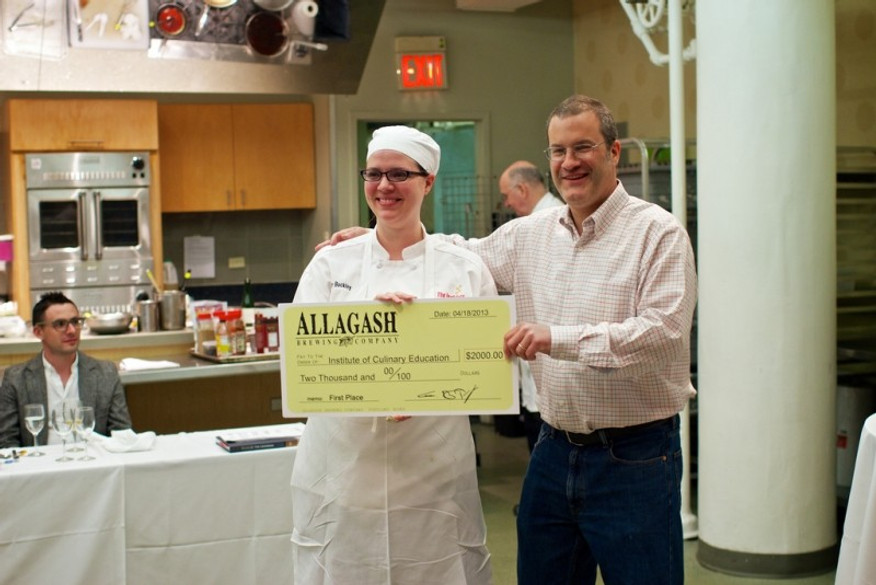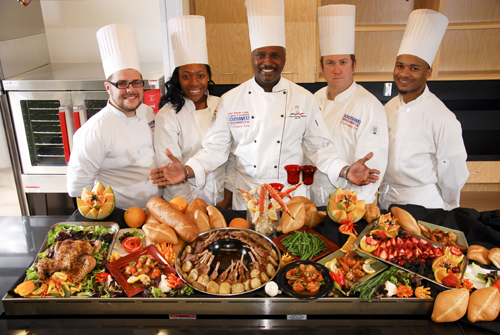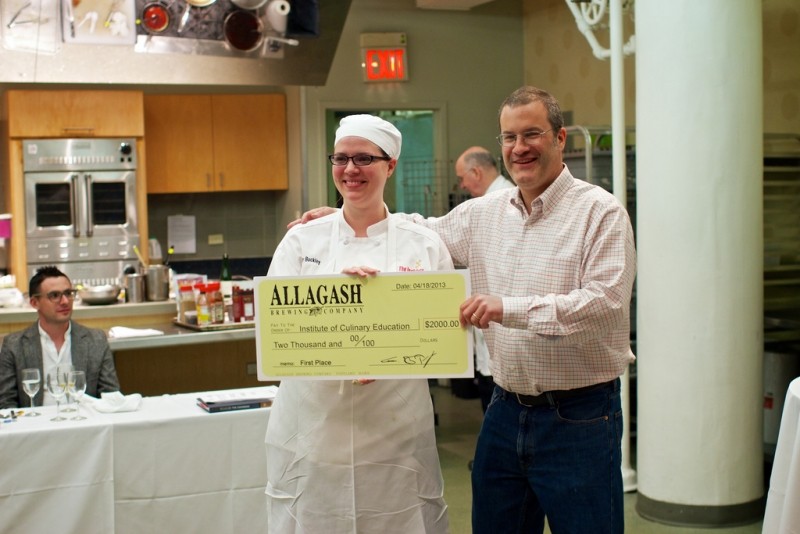Jun 27th 2016 - Guest
Is Culinary Education Really Worth It?
The question of whether to attend a culinary school or undergo some other form of culinary education has triggered a major debate. Every couple of months we hear about a famous culinary school losing a lawsuit against some former graduate who regrets having spent enormous amounts of money and remains unemployed afterwards. At the same time, there are also some outspoken advocates of culinary education, its merits and the opportunities it offers. In other words, there's no clear-cut answer and it would be hasty to conclude in a black-and-white manner.
Whether to attend culinary school is not only a matter of money, though with some very high tuition fees it is certainly a top consideration. Other considerations include how certain one is about what one wants to do, how one envisions one's future (which is never certain, of course), how hard-working and diligent one is, etc. Therefore, before coming to a final conclusion, one should consider at least the following:
Culinary schools
An advantage of culinary schools, according to some proponents, is that it provides students with a very stable foundation of everything required of them at the outset of their career path. In other words, basic skills and knowledge are being taught in ways which make them easier to learn in comparison to learning them straight in the kitchen of some restaurant. But that depends on one's temperament because some people learn better by doing while others require time to practice or read about it before becoming confident enough to actually try.
Furthermore, depending on the type of degree, such skills can be developed to a very high extent and there is plenty of room for specialization, in case one has a clear idea of what one really wants.
Tuition fees
But all of that comes at a certain price and this price can be quite high. Unless you own a small hereditary fortune, going to culinary school can become more of a burden rather than the fulfillment of a long-held dream. Depending on the type of degree and its duration, culinary education in some of the country's best schools starts at around $19,000 for a 12-month degree and can be as expensive as $108,000 for a full bachelor degree. That is a quite a lot of money which most people can't simply fund from their own pocket. Additionally, student loans are not so easy to pay back, considering that one ends working for $10 an hour at the beginning of a career, regardless of whether they attended culinary school or not. You make the math but anyway you calculate it, it's a costly undertaking.
Alternatives
There are, of course, alternatives to culinary schools and these are more viable in terms of tuition while at the same time providing students with more or less the same set of skills. The American Culinary Federation, for example, offers a range of different programs, training and apprenticeships costing only a fragment of what one would pay at a culinary school (the annual fee for an ACF apprenticeship starts at $125 dollars, not including application fee or other costs). One of the industry's strongest proponents of apprenticeship programs is star chef David Chang who has, for a long time, been critical of culinary schools.
Other alternatives to a culinary school are community colleges (some of which are also ACF certified) which can be about $20,000 cheaper than the bigger culinary schools and not necessarily worse in terms of education. As chef Joseph Gillard once noted – by attending a community college he received the same education for $3,000 that his colleagues at the CIA or CCA received for about $30,000. Then again, a word of caution is also necessary – proper research about what community programs entail is important as well as finding out how much support one can expect when it comes to looking for a job afterwards.
Is culinary education necessary at all?
Let's get back to that initial question. There still is no straightforward answer. On the one hand – education is always necessary and should always be encouraged. But one should also be wary. Many chefs say that the best thing to do before enrolling in any type of culinary education is to actually try first hand – that is, get a job at a restaurant and have a taste of what work in the kitchen is like. Because if you're thinking about becoming a professional chef at some point, you'll be spending your days in the kitchen for a long time. Furthermore, a lot of people end up changing what they want to study, once they enroll in the school and suddenly find out that they're actually much more interested in something else. Trying out working in a restaurant can have a similar effect – it's hard work, especially if you're entirely new and requires you to be really clear about whether you want that or not.
Finally, though these are single cases rather than the rule, there are some star chefs out there who never went to any type of school, including: Mario Batali, Guy Fieri, Gordon Ramsay and Rachael Ray. In other words, the ways to becoming a chef are many and they may depend on a good educational background just as much as on personal traits, determination and diligence. That is also the reason why culinary schools cannot be banished as being useless. Neither can people who never had any culinary education be said to have fewer chances than their educated peers.



